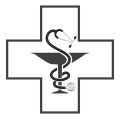Acid Reflux
Causes
Strong acids are present in the stomach that help to break down food. The stomach contents are separated from the esophagus by a ring of muscle (sphincter). This sphincter opens to allow food to pass from the esophagus into the stomach, but otherwise it remains closed in healthy individuals. Acid reflux occurs when the sphincter opens abnormally, allowing gastric acids to leak up through it and into the esophagus.
Occasional episodes of acid reflux may occur in healthy people. However if this happens regularly then it is called gastroesophageal reflux disease (GERD).

Signs and Symptoms
When acid comes in contact with the esophagus it causes discomfort. This discomfort is often described as burning sensation that rises up from the chest to the neck (sometimes called heartburn). Symptoms are often worse after a meal, as that is
when acid production is increased.
Investigations
Gastroesophageal reflux disease is diagnosed based on the symptoms and history; however, other causes of chest pain (such as coronary artery disease) should be excluded before a diagnosis of acid reflux given. A good response to treatment is usually adequate confirmation of the diagnosis.
Treatment
Gastroesophageal reflux disease is treated with medications that reduce the production of acid in the stomach, such as oral Cimetidine. Medications that neutralize the acids in the stomach (antacids) are also helpful, such as oral Aluminium Hydroxide. Certain lifestyle modifications are also advised (such as adjusting what the person eats). If acid reflux does not resolve then there are other medications that can be given. Surgery may be required for severe gastroesophageal reflux disease.
Complications
Gastroesophageal reflux disease can lead to complications in some people, such as inflammation of the esophagus (esophagitis), scarring of the esophagus (stricture), irritation of the vocal cords (resulting in hoarse voice), and inhalation of gastric acid (pulmonary aspiration).


